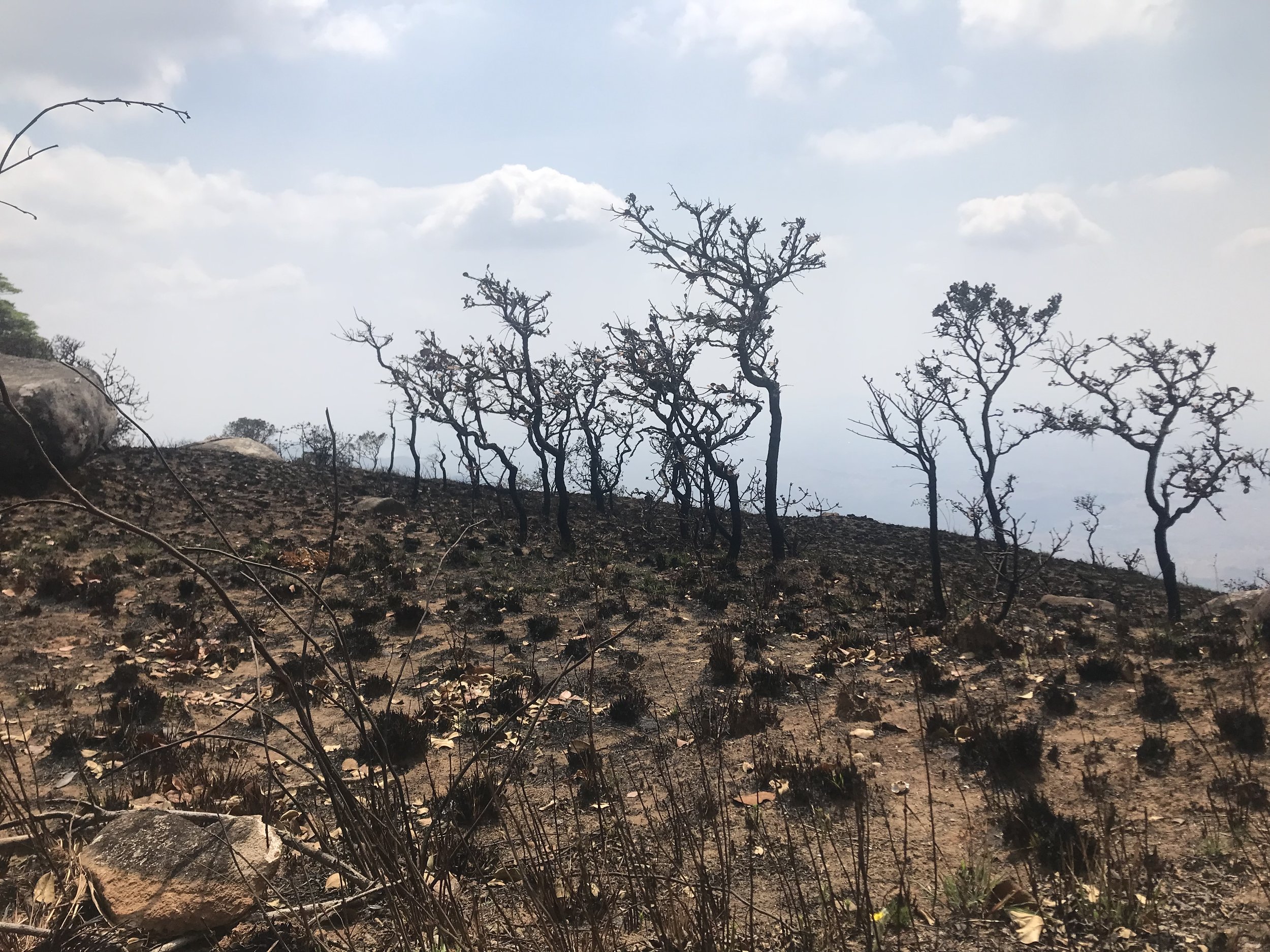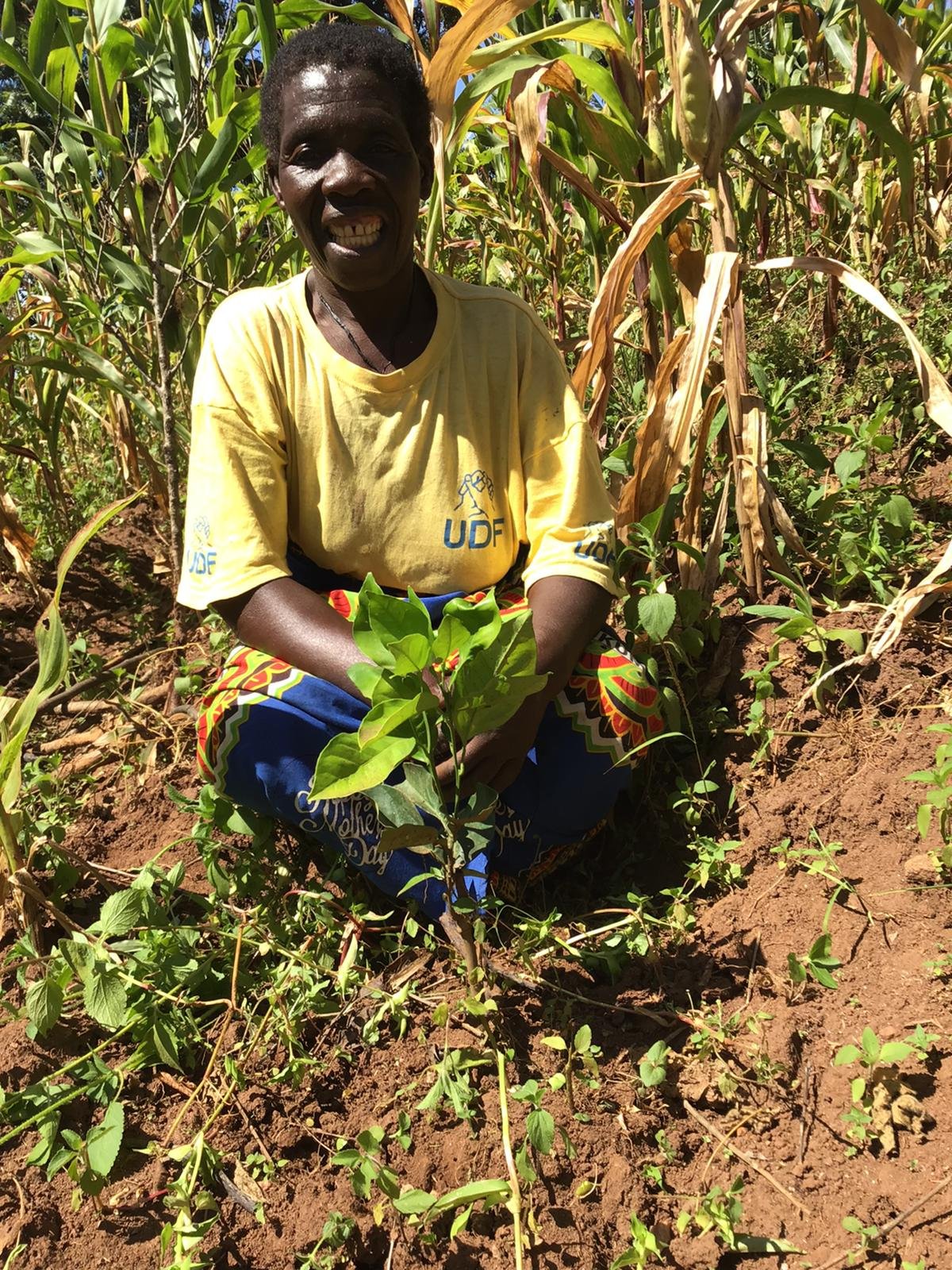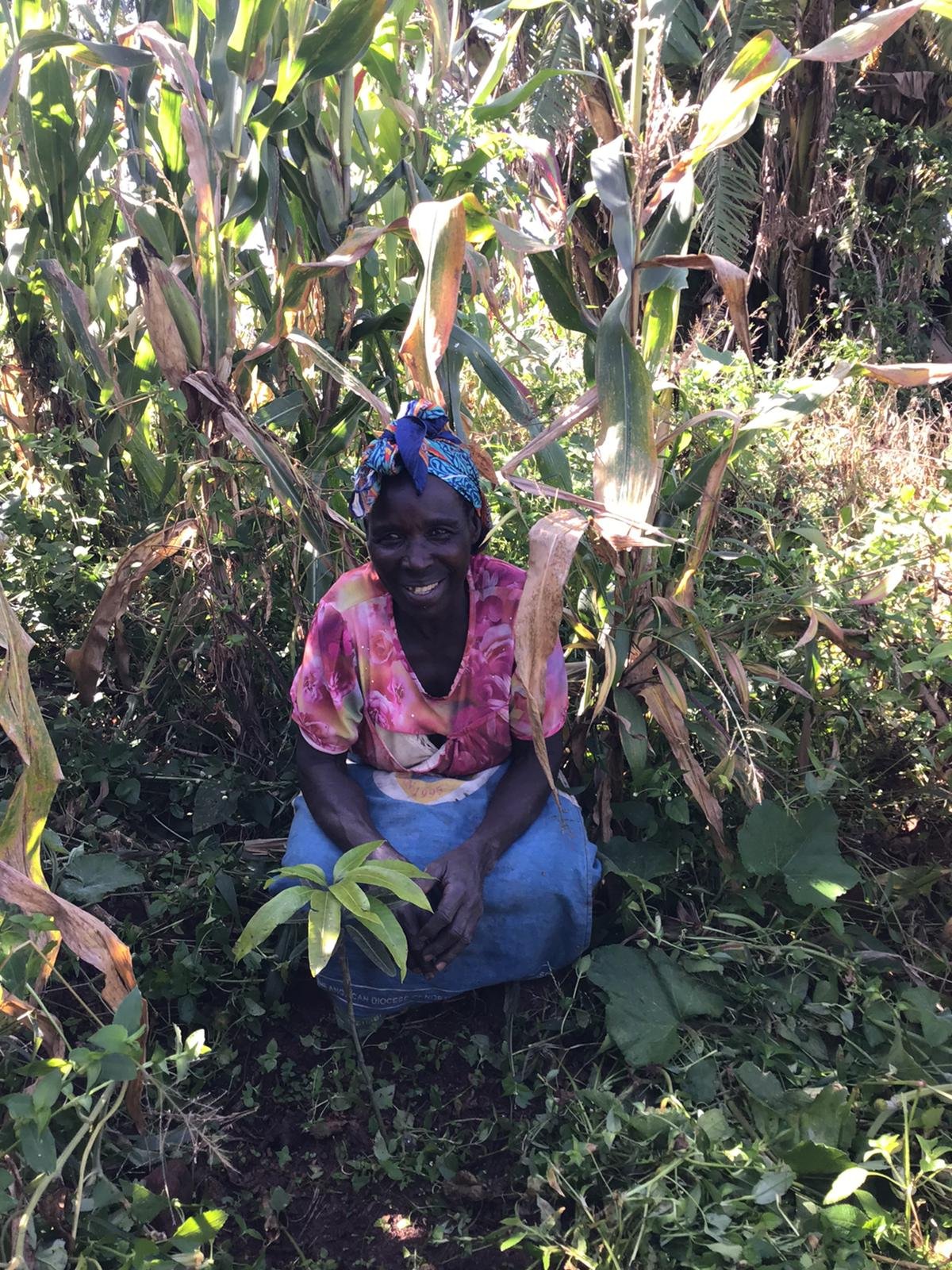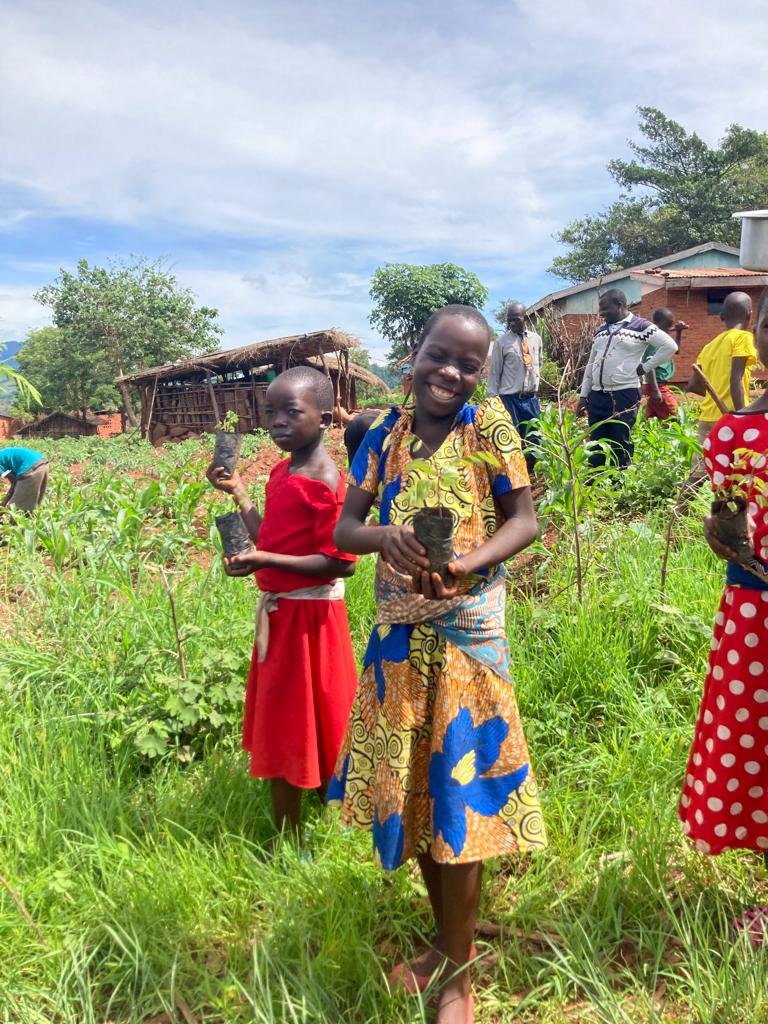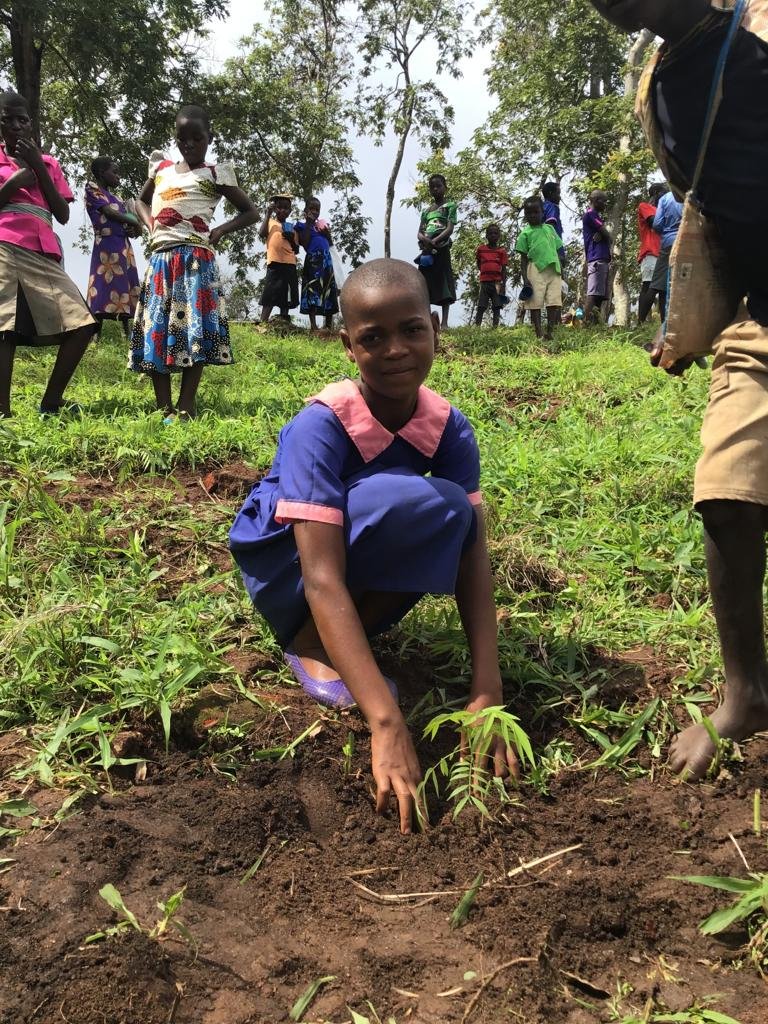Planting trees in Malawi for the climate
May 30, 2022 — Anne Siemen and Johannes Sattler
Do you also have a colleague in Africa?
No? We do 🤭
Actually, the place of residence is secondary in our collaboration. But why Julia in Malawi plays a central role in subject:RESOUL, you can find out here.
Like many of your organizations, we have been ambitious to become a CO2-neutral organization for a few years now. We started with elaborate evaluations of our footprint, offset it regularly, reported here and there about our small initiatives on LinkedIn. Why is this so important to us? We want to take responsibility for our actions, make sensible use of resources, and support a common good - in our private lives as well as in, with, and through our organization.
And because we can't stop thinking about these issues, we have integrated the topic of economy for the common good into our circle organization. We are working hard on our ECG report, have defined a "green" goal in our OKR process AND - now Julia comes into play - have found a wonderful compensation project in Malawi, which Julia accompanies on site.
Why Malawi? We don't know about you, but such a compensation takes away your bad conscience. You get a nice certificate, but you don't really see and feel how the chosen initiatives are implemented. Julia visited the last patch of rainforest in Malawi last year and told us about it. Malawi is directly affected by climate change. It has devastating consequences on the lives of the already vulnerable population.
Malawi lives primarily from agriculture - about 85% of Malawians are smallholder farmers and grow much of their own food. Access to water for irrigation of fields is limited due to topography and cost. Much of the land is already deforested, as firewood accounts for about 88% of energy needs. The effects of climate change are most evident in unreliable rainfall (too much, too little, too early, too late), droughts, and high winds.
All of this is reason enough to take a closer look if you are lucky enough to get first-hand accounts of experiences! We would like to share these with you - as an inspiration and perhaps even an impulse to look through "green glasses" more often.
Barren land in Malawi, hardly any rainforest left, poor conditions for crops and little shade for the population.
During one of Julia's visits to the last patch of rainforest in the country, she met Tim Bellack. He is a guesthouse operator in Ntchisi and a board member of the Kumanga association. Kumanga develops sustainable projects on site, which are directly accepted and implemented by the population.
The association was founded on the philosophy that access to clean and safe drinking water is a right for all people and should therefore be possible. With the construction of wells and the support of healthy nutrition in kindergartens, the association has laid the foundation for its work. 30 drinking water wells to supply 15,000 people have already been built and children in Mpamila Village benefit from one hot meal a day, balanced, filling and fundamental for healthy development!
Kumanga is open to further projects and cooperation because there are many opportunities for urgently needed support in Malawi. The goal is to create framework conditions that will enable sustainable self-sufficiency of the communities in the long term.
Reforestation and the saving of firewood through the availability of alternatives are of particular importance. This saves CO2 and the population benefits directly. So this is not a one-sided charity project, but benefits for all participants of the projects, which successively arise from the interests of the village communities.
Kumanga has an eye for the big picture as well as for the individual needs of individuals - and we are happy to support it's goals:
Reduce open space in the country, creating more habitat for wildlife
Reducing firewood demand and creating energy-efficient alternatives
Develop sustainable forestry needs
Farmers to benefit from reforestation
Awareness Campaigns in the villages
Education in schools and involvement in the projects
We wanted to offset 42 tons of CO2 for the year 2020 as an organization. We decided to implement this together with Kumanga in Malawi. In the next section we will tell you how Julia accompanies us as a sponsor for the project on site.
Each tree counts!
In Malawi, a lot of cooking is done on open fires. A lot of wood is needed for this. This is one reason why there is hardly any rainforest left in Malawi. Investing only in reforestation is very short-sighted in this respect, because the laboriously planted trees are quickly cut down again and the bound CO2 is released back into the atmosphere. So with Tim's advice, we decided to invest in three different options of compensation:
CO2-saving cooking stoves
First, we invested in the procurement of 50 mbaulas. These cooking stoves have the great advantage of saving a lot of firewood in a simple way - compared to the open fire between three stones, which is still used as a widespread means of food preparation in Malawi. The "Deutsche Gesellschaft für Internationale Zusammenarbeit GmbH" has developed these stoves and calculates up to 4 tons of CO2 savings per stove per year!
In past projects, these mbaulas have already been very well received. The 50 mbaulas financed by us will be distributed after the end of the rainy season. We are excited and very much looking forward to the feedback from Kumanga on how it will have started.
Protection from sun and wind plus "eco-education"
The photos show the 1,900 indigenous shade trees that were distributed to four schools on our behalf. Shade trees are much cheaper than fruit trees (see below). This means that more trees can be planted and more CO2 can be bound. At the same time, there is a great need for protection from sun and wind, especially at schools. Last but not least, this donation also gave the students the opportunity to learn about forests and trees, the water cycle and biodiversity in small workshops, and then to get involved themselves with enthusiasm. The hope is that this will also promote ecological awareness and that future generations will treat the rainforest with more care than our own generation.
All trees have been planted and are being cared for on their own responsibility, but with the support of Kumanga. Tim Bellack spoke of enthusiastic chaos among the children and is pleased with the schools that large areas of shade trees are now growing and flourishing around playgrounds, soccer fields and other areas.
Encourage interest in preserving trees
We want to counteract deforestation and therefore we have invested the third part of our donation in fruit trees. We hope that fruit trees with the dual benefit of providing shade and food will remain in the farmers' fields longer and will not be turned into firewood so quickly. 750 of them, mangoes, avocados and oranges, from the Lilongwe nursery were purchased by Kumanga, nurtured until the planting season and distributed to the farmers. Kumanga has ensured that the trees have been planted properly and is in regular communication with the farmers. Tim from Kumanga estimates that over 15 years, about 50% of the trees survive. There is room for improvement...
We will continue to support the initiatives. Dear Julia, thank you for your impulse and the opportunity to support this great association in your new home for a while.




